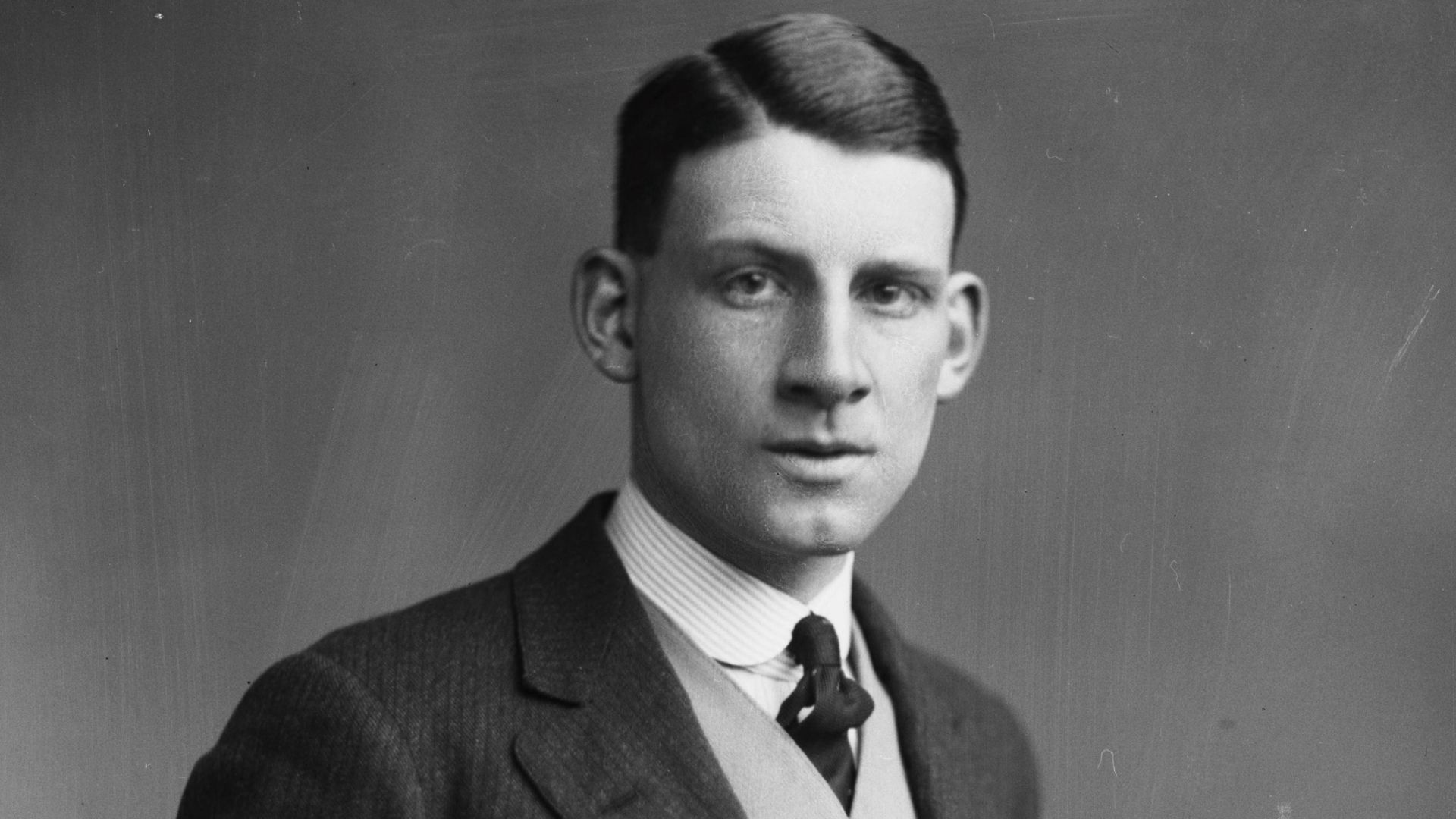Siegfried Sassoon Biography
Siegfried Sassoon was perhaps the most innocent of the war poets. John Hildebidle has called Sassoon the "accidental hero." Born into a wealthy Jewish family in 1886, Sassoon lived the pastoral life of a young squire: fox-hunting, playing cricket, golfing and writing romantic verses.
Being an innocent, Sassoon's reaction to the realities of the war were all the more bitter and violent -- both his reaction through his poetry and his reaction on the battlefield (where, after the death of fellow officer David Thomas and his brother Hamo at Gallipoli, Sassoon earned the nickname "Mad Jack" for his near-suicidal exploits against the German lines -- in the early manifestation of his grief, when he still believed that the Germans were entirely to blame). As Paul Fussell said: "now he unleashed a talent for irony and satire and contumely that had been sleeping all during his pastoral youth." Sassoon also showed his innocence by going public with his protest against the war (as he grew to see that insensitive political leadership was the greater enemy than the Germans). Luckily, his friend and fellow poet Robert Graves convinced the review board that Sassoon was suffering from shell-shock and he was sent instead to the military hospital at Craiglockhart where he met and influenced Wilfred Owen.
Sassoon is a key figure in the study of the poetry of the Great War: he brought with him to the war the idyllic pastoral background; he began by writing war poetry reminiscent of Rupert Brooke; he mingled with such war poets as Robert Graves and Edmund Blunden; he spoke out publicly against the war (and yet returned to it); he influenced and mentored the then unknown Wilfred Owen; he spent thirty years reflecting on the war through his memoirs; and at last he found peace in his religious faith. Some critics found his later poetry lacking in comparison to his war poems. Sassoon, identifying with Herbert and Vaughan, recognized and understood this: "my development has been entirely consistent and in character" he answered, "almost all of them have ignored the fact that I am a religious poet."
I knew a simple soldier boy
Who grinned at life in empty joy,
Slept soundly through the lonesome dark,
And whistled early with the lark.
...
Have you forgotten yet?...
For the world's events have rumbled on since those gagged days,
Like traffic checked while at the crossing of city-ways:
And the haunted gap in your mind has filled with thoughts that flow
...
The anguish of the earth absolves our eyes
Till beauty shines in all that we can see.
War is our scourge; yet war has made us wise,
And, fighting for our freedom, we are free.
...
Does it matter? -losing your legs?
For people will always be kind,
And you need not show that you mind
When others come in after hunting
...
